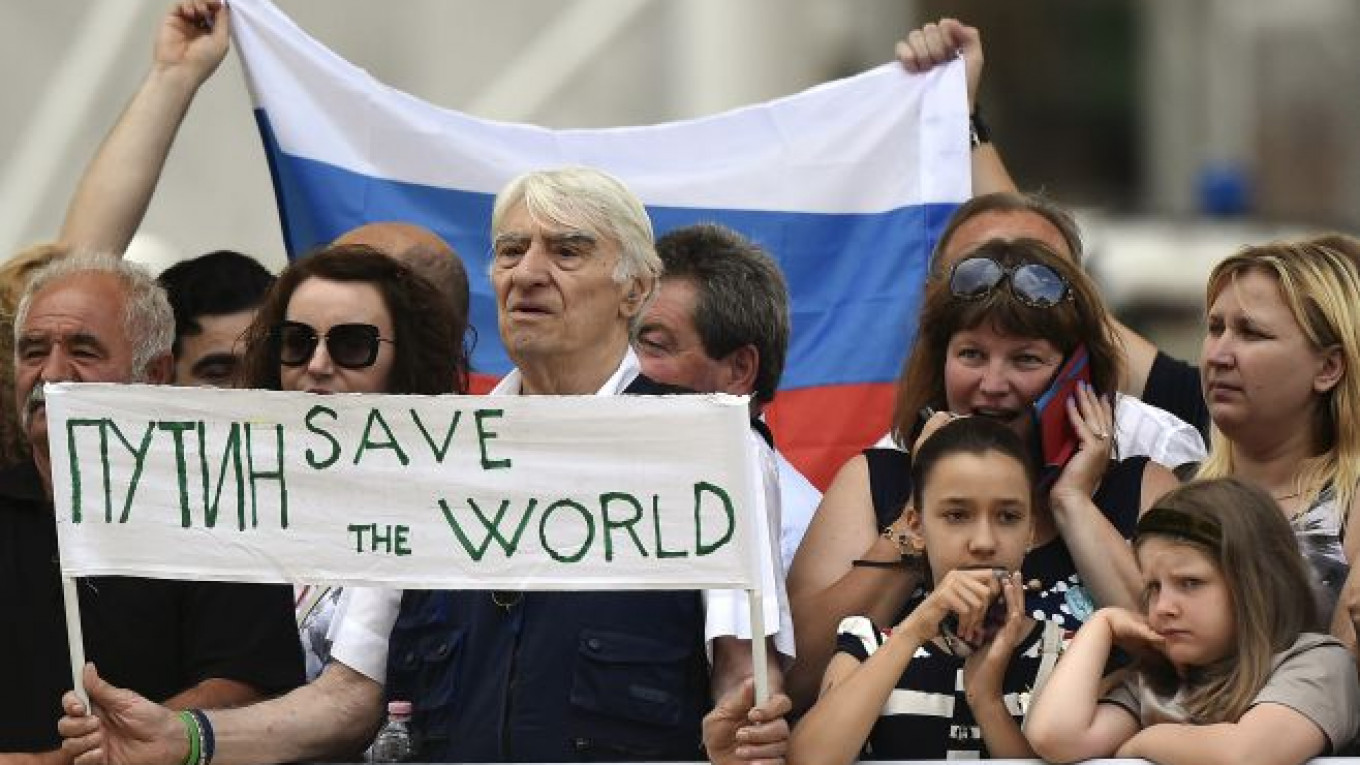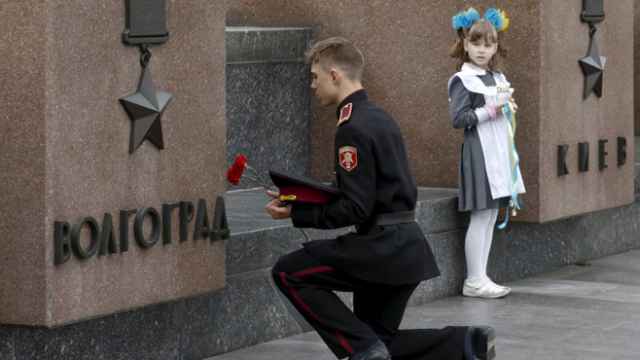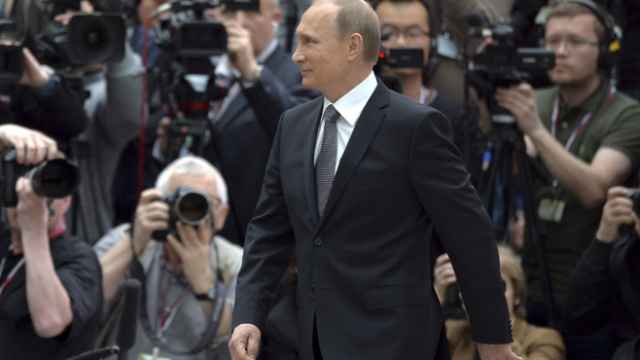The Kremlin shelled out big money last week to host the so-called "World Congress of Russian Press" that brought together representatives of more than 500 Russian-language media outlets from 63 countries.
The government paid for their tickets, put them up in swanky hotels, wined and dined them several times, gave them an audience with Prime Minister Dmitry Medvedev and Kremlin chief of staff Sergei Ivanov and proposed that they discuss ways to "develop a unified global Russian information sphere."
The idea of a "unified global Russian information sphere" sounds somewhat alarming considering past and current events in Ukraine.
The main speaker, former CEO of the state-owned TASS news agency and current head of the World Association of Russian Press, Vitaly Ignatenko, openly stated that in his opinion, the Western press does not give Russians living abroad an objective picture of events in Russia and the world, and that Russian-language newspapers and radio stations should therefore provide that service.
Of course, by "objective" this veteran of ideological struggle meant "toeing the Kremlin line." Recall that Ignatenko once received the Lenin Prize for his screenplay of "A Tale of Communists," a movie that not only obsequiously sang the praises of former Soviet leader Leonid Brezhnev, but did so during his lifetime.
I live in Italy, where for many years two Russian-language newspapers engaged in a fierce competition. One suddenly relocated to Portugal, but the second did not have long to enjoy its newfound monopoly: In late 2013, La Nostra Gazzetta prepared to close its doors and even promised to refund readers for their prepaid subscriptions.
And then, soon after Russia's "polite men in green" conquered Crimea, the newspaper suddenly experienced a rebirth. It now comes out in 40 full-color pages each week and is available in every newsstand. And although I have never once seen anyone buy a copy, it is now chock full of glowing reports about President Vladimir Putin's many accomplishments as National Leader and what a mistake the West is making in refusing his friendship.
Whereas in the past, immigrants from Russia, Ukraine and Moldova somehow cobbled together each issue, now Italian surnames accompanied by such job titles as "professor," "political analyst" and "historian" grace every political article that appears.
What types of stories does the newspaper print? Here are a few verbatim quotations: "Europe cannot get by without the Russian market and it harms only itself with such excessive adulation of the United States." "Ukraine has always been a Russian province and even the place of Russia's founding, Rus. The Soviet Union arbitrarily created Ukraine without taking into account the fact that very different peoples inhabit that territory." "The symbol of the struggle against Ukrainian fascism and German Nazism is the St. George ribbon, in memory of the great sacrifices Russians made in saving the Motherland. Now it is worn by the soldiers of Novorossia that fight against the Kiev junta that came to power with U.S. support as a result of a bloody coup d'etat."
And so on. It is very striking how the newspaper came into unheard of wealth the moment it switched its editorial policy. I happen to know that many other Russian-language newspapers all over the world have undergone similar metamorphoses.
Russian emigrants live all over the planet, and wherever they now call home, they can usually find a Russian-language newspaper. No doubt, the 500 representatives of those papers and other media outlets did not leave Moscow empty-handed.
The Kremlin is paying close attention to that "Russian world," freely spending taxpayer money to grease the palms of its agents abroad in hopes of poisoning every last Russian — no matter how distant — with its duplicitous propaganda.
Andrei Malgin is a journalist, literary critic and blogger.
A Message from The Moscow Times:
Dear readers,
We are facing unprecedented challenges. Russia's Prosecutor General's Office has designated The Moscow Times as an "undesirable" organization, criminalizing our work and putting our staff at risk of prosecution. This follows our earlier unjust labeling as a "foreign agent."
These actions are direct attempts to silence independent journalism in Russia. The authorities claim our work "discredits the decisions of the Russian leadership." We see things differently: we strive to provide accurate, unbiased reporting on Russia.
We, the journalists of The Moscow Times, refuse to be silenced. But to continue our work, we need your help.
Your support, no matter how small, makes a world of difference. If you can, please support us monthly starting from just $2. It's quick to set up, and every contribution makes a significant impact.
By supporting The Moscow Times, you're defending open, independent journalism in the face of repression. Thank you for standing with us.
Remind me later.






